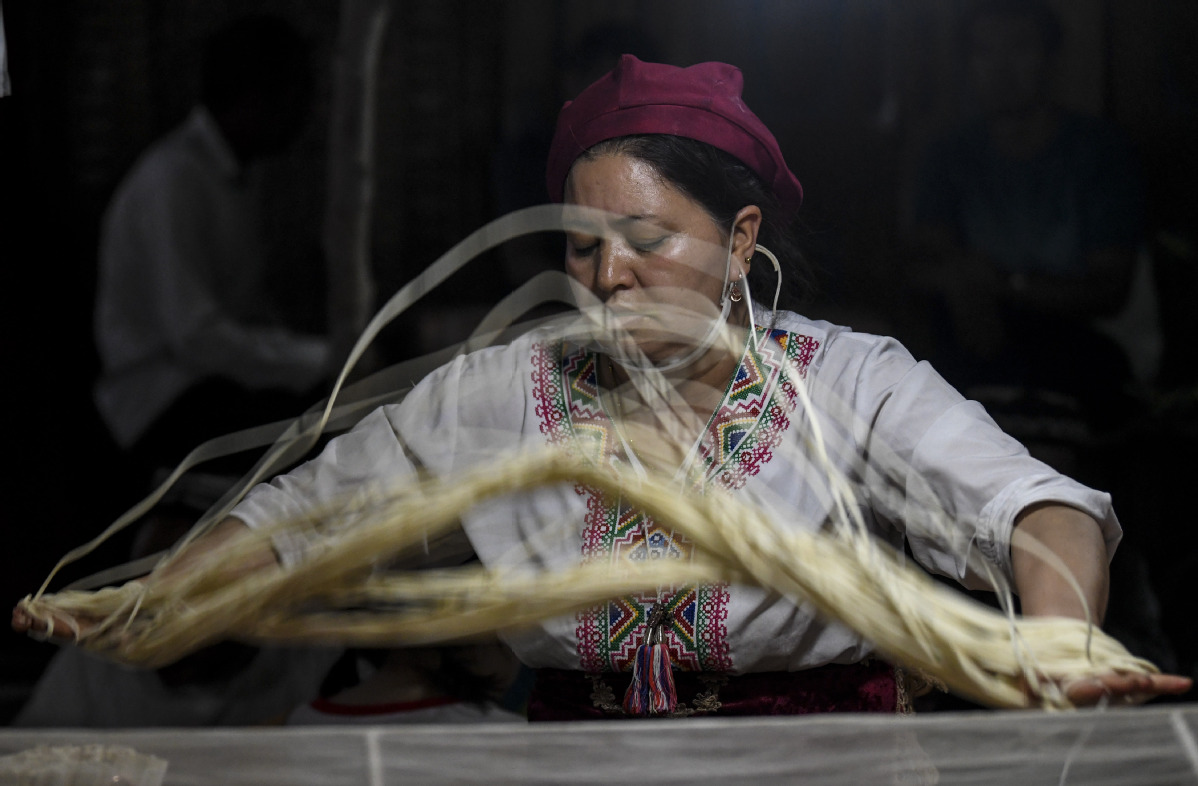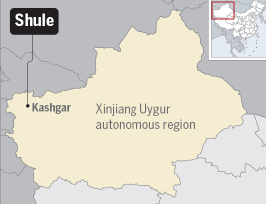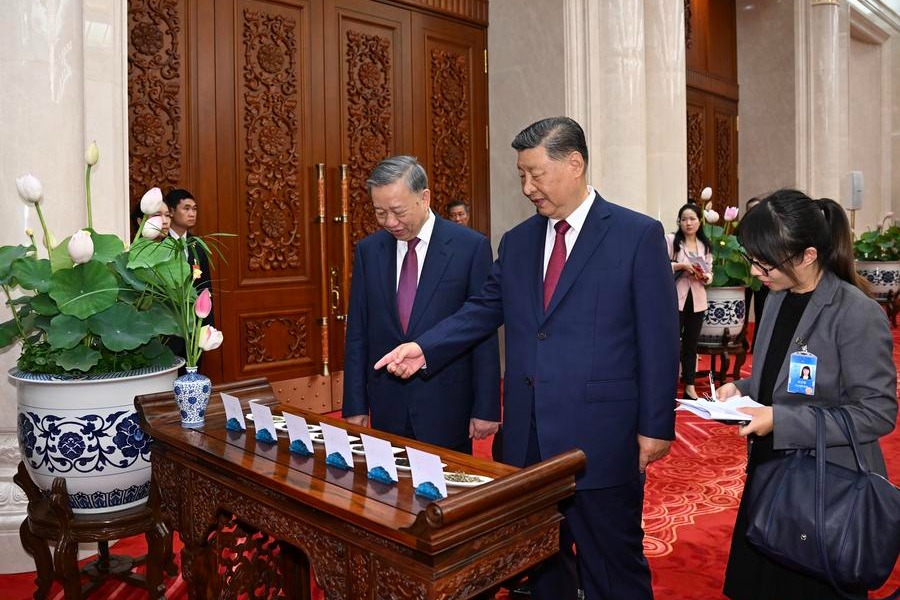Coming out of traditional mold and giving life a new beginning


Improving lives
According to the regional government, about 1.4 million women in Xinjiang have shaken off absolute poverty in the past five years. There are 165,800 people who are still living below the poverty line in the region and they are set to be lifted out of absolute poverty at the end of this year.
The central government also established an economic development zone in Kashgar at the first National Symposium on Work in Xinjiang in 2010. Since then, 18 billion yuan has been invested in building infrastructure facilities in the zone. More than 2,600 companies have moved to the zone, offering 12,000 jobs to those ranging from poverty-hit residents to young graduates.
Shule villager Marhaba Wulayim herself came across the recruitment notices put out by a newly opened village textile mill affiliated to a company in the zone, so she applied for the job through the internet and passed a subsequent interview in May 2017.
"Before I signed the contract, my father dissuaded me from the job, because he thought a 22-year-old woman should stay at home and wait for a man to marry her. I was pretty upset until several local cadres came to my house and convinced my father that I would be safe and earn more money in the mill," Marhaba said.
Like the 269 other female employees from the poverty-hit families in Shule who are working in the textile mill, Marhaba received pre-job training once she arrived at the mill. She learned how to use textile machines in Kashgar and now, after working in the mill for three years, she is able to earn more than 2,700 yuan a month.
"For me, the biggest change is not the salary but independence. I'm starting to dress up, buying some beautiful clothes through online shopping and, more importantly, I am about to marry a man who loves and respects me," Marhaba said.
Becoming self-reliant
More women in southern Xinjiang are gaining confidence and becoming more self-reliant, as they move from doing chores at home and other traditional roles toward paid work and improved lives.
Aynur Akhat, a 27-year-old from nearby Bahqi village, said she works from 10 am to 7 pm, Monday to Saturday, in the textile mill. She is single now, but if she finds a boyfriend he will have to adapt to her work schedule, Aynur said.
"Some of the women in my village were shocked when they heard that I plan to choose for myself someone among the men who may be pursuing me. I told them this is the result of self-reliance," Aynur said.
In July 2017, Aynur's neighbor told her that the mill was recruiting weavers. As a junior college graduate who also had work experience in the nursing department of a local hospital, Aynur was subsequently employed by the mill.
"We found Aynur to be smart and studious after she came here. After she worked at a workshop for two years, we sent her to Yinchuan, capital of the Ningxia Hui autonomous region, where we had a management training center. She stayed there for several months. We gave her a promotion, as head of the workshop, after she came back," mill manager Di Xiuhua said. "Now she is one of the best employees here."
Aynur earns a monthly salary of more than 3,500 yuan. Her family shook off poverty last year, and she gave her parents financial support when they had their house renovated. She said that though her parents want her to marry soon, she is not in a hurry.
"My job gives me a strong sense of fulfillment," Aynur said. "It has made me more self-reliant."
























